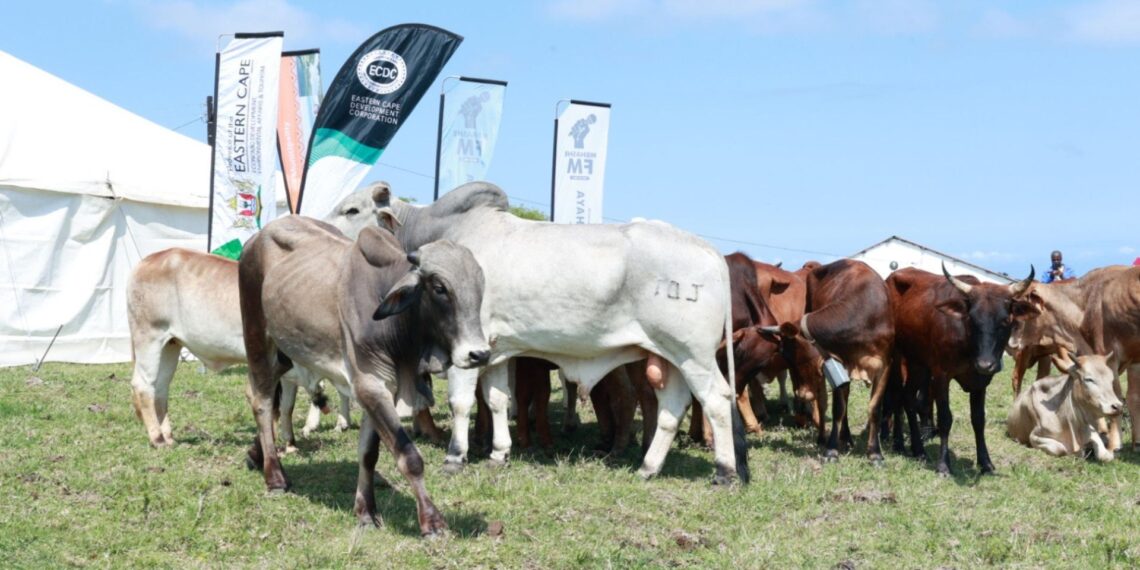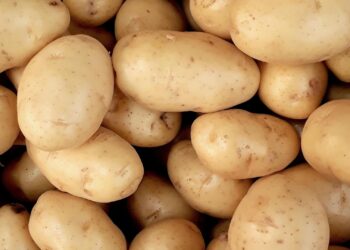A R350 000 injection from the Eastern Cape Development Corporation’s (ECDC) Imvaba Cooperative Fund is helping to fast-track the commercialisation of the Nqabarha Cooperative, a rural livestock enterprise based in Lubhelu Village, Willowvale.
According to the cooperative, the injection is meant to scale operations, improve herd quality and drive the entrance of the six-member cooperative into the livestock commercial value chain.
“The financial injection came in the form of 20 heifers, animal feed and veterinary medication worth R55 000. Established by a group of subsistence farmers after 10 years of individual farming, it now operates on 10 hectares with access to an additional 100 hectares of communal land. The cooperative has a mixed herd of 100 cattle and 60 goats,” the fund stated.
Growing the Eastern Cape economy
The cooperative’s spokesperson, Sindisa Dunga, said since its inception, the Imvaba Cooperative Fund has supported over 400 cooperatives in the Eastern Cape. These cooperatives have contributed to the creation of more than 2 600 permanent and seasonal jobs.
“Our next phase involves entering the agro-processing value chain by establishing a small-scale abattoir, a critical step toward year-round meat supply and improved market access for local producers.
“With the current support, Nqabarha Cooperative aims to transition from community-based livestock management to commercially oriented production while continuing to support smallholder farmers in the region,” Dunga said.
Dunga said they manage livestock not just for themselves, but for new-era farmers from as far as Mthatha.
Related stories
- Eastern Cape MEC Kontsiwe applauds clean audit and job creation
- How Eastern Cape communities plan to restore grazing lands
- South African Agricultural Awards set to shine in Durban
- Farmers must lead climate-smart policies, say experts
“This funding allows us to improve productivity, animal health and services. We currently provide boarding services for emerging livestock farmers, supplies cattle for local cultural and ceremonial needs, and employs four locals.
“We also invested R20 000 into fencing and infrastructure development, hiring local labourers and further stimulating the rural economy,” explained Dunga, who left the corporate sector to help grow the cooperative.
Leading the handover of the 20 heifers, animal feed and veterinary medication, the Eastern Cape MEC for economic development, environmental affairs and tourism, Nonkqubela Pieters, said the department, through the Imvaba Cooperative Fund, is investing in the capacity of cooperatives to become sustainable, create jobs and contribute to inclusive growth in the Eastern Cape economy.
How the Imvaba Cooperative Fund works
Eastern Cape Development Agency regional manager for the Buffalo City and Amathole region, Rufus Nayo, said the Imvaba Cooperative Fund promotes the development, productivity and competitiveness of cooperative enterprises in the Eastern Cape.
Nayo explained that it offered a financial incentive capped at a maximum of R600 000 for qualifying cooperatives, including an additional R150 000 for enterprising individuals with the cooperative. The fund is offered in the form of a non-repayable incentive combined with institutional and capacity-building support.
“The fund has thus played a catalytic role in injecting resources into local economies, strengthening local cooperative enterprises, and supporting inclusive economic growth.
“The Imvaba Cooperative Fund’s sector focus is relatively broad and includes agriculture, agro-processing, tourism, manufacturing, ICT, green economy, crafts and the oceans economy among others,” Nayo said.
READ NEXT: Jobless EC graduates strike gold with peanut butter co-op


















